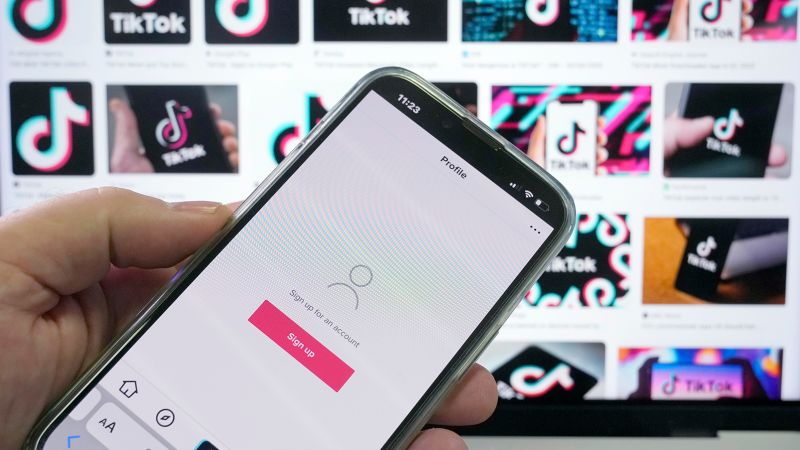Australian broadcaster Sky News has left TikTok because of security concerns that have led several Western governments to ban the video app on devices used by officials.
In an article published on the Sky News Australia website Monday, digital editor Jack Houghton said the security risks posed by the “Beijing-controlled platform” were “too great for any serious news publisher.”
“TikTok is a spy network masquerading as a social media platform which has been proven to illegally pilfer the data of journalists, public citizens and politicians,” Houghton wrote.
“We urge [media organizations] to consider this dilemma and stop trading security and integrity for a few worthless views,” he added.
In a statement to CNN, Lee Hunter, General Manager of Operations for TikTok in Australia and New Zealand, said he respects the broadcaster’s right to make decisions to best serve its audience, but rejected the “allegations and insinuations” made in the Sky News Australia article.
“[They] are completely false and we reject them in the strongest possible terms,” he said.
Experts say the security fears behind the recent government bans, while serious, currently appear to reflect only the potential for TikTok to be used for foreign intelligence, not that it has been. There is still no public evidence the Chinese government has actually spied on people through TikTok.
Sky News Australia is owned by Rupert Murdoch’s News Corp
(NWSA), and is a separate entity to UK broadcaster Sky News, which is owned by Sky Group, a division of US conglomerate Comcast
(CCZ).
Last year, TikTok’s owner ByteDance admitted that four employees had improperly accessed personal data of two journalists from the Financial Times and BuzzFeed.
ByteDance said the relevant staff were investigating potential information leaks, and they were fired for misusing their authority to access TikTok user data.
Separately, broader concerns have been raised by experts worldwide that TikTok presents a security risk due to the vast troves of data it collects on millions of users, and its vulnerability to potential interference from the Chinese government, which wields considerable influence over businesses in its jurisdiction.
The United States and other Western nations have banned the app on government devices, with the Biden administration threatening to go further by imposing a broader ban unless TikTok’s Chinese owners sell their stakes in the company. A blanket ban would deny 150 million US users access to the platform.
TikTok has repeatedly denied it has links to Beijing, and the company’s CEO Shou Chew recently told a US congressional hearing that he’d seen no evidence that the Chinese government had access to user data and had never asked for it. Moreover, he said the amount of information the company collects on users is no more than most industry players.
While a number of governments have moved to delete TikTok from their employees’ phones, most major news companies are yet to follow.
Last month, the BBC advised staff to delete TikTok from their work phones, following a similar move by Danish public broadcaster, DR, but the British broadcaster still publishes its content on the short form video app to millions of followers.
Sky News Australia’s Houghton said the decision by the BBC to ban the app yet publish content on the platform was a “paradox” that “proves the hunger for reaching new demographics has perverted editorial strategies in newsrooms globally.”
CNN has reached out to the BBC for comment.
Before it deleted its account, Houghton said Sky News Australia had 65,000 followers and “many millions of video views.”
The channel is known for its conservative commentary and last year was described in a report by UK think tank the Institute for Strategic Dialogue as “an important right-wing outlet with growing influence internationally.”
In relation to the climate crisis, it was also described as “content hub for influencers, sceptics and outlets across the globe.”
In 2021, YouTube banned Sky News Australia from uploading new content for one week for posting misinformation about the Covid pandemic. At the time, the broadcaster issued a statement rejecting allegations that its host had denied the existence of Covid-19, and that it had published or removed videos that showed them saying as much.
Houghton also argued in an online article that the decision was “a disturbing attack on the ability to think freely.”
Read the full article here




